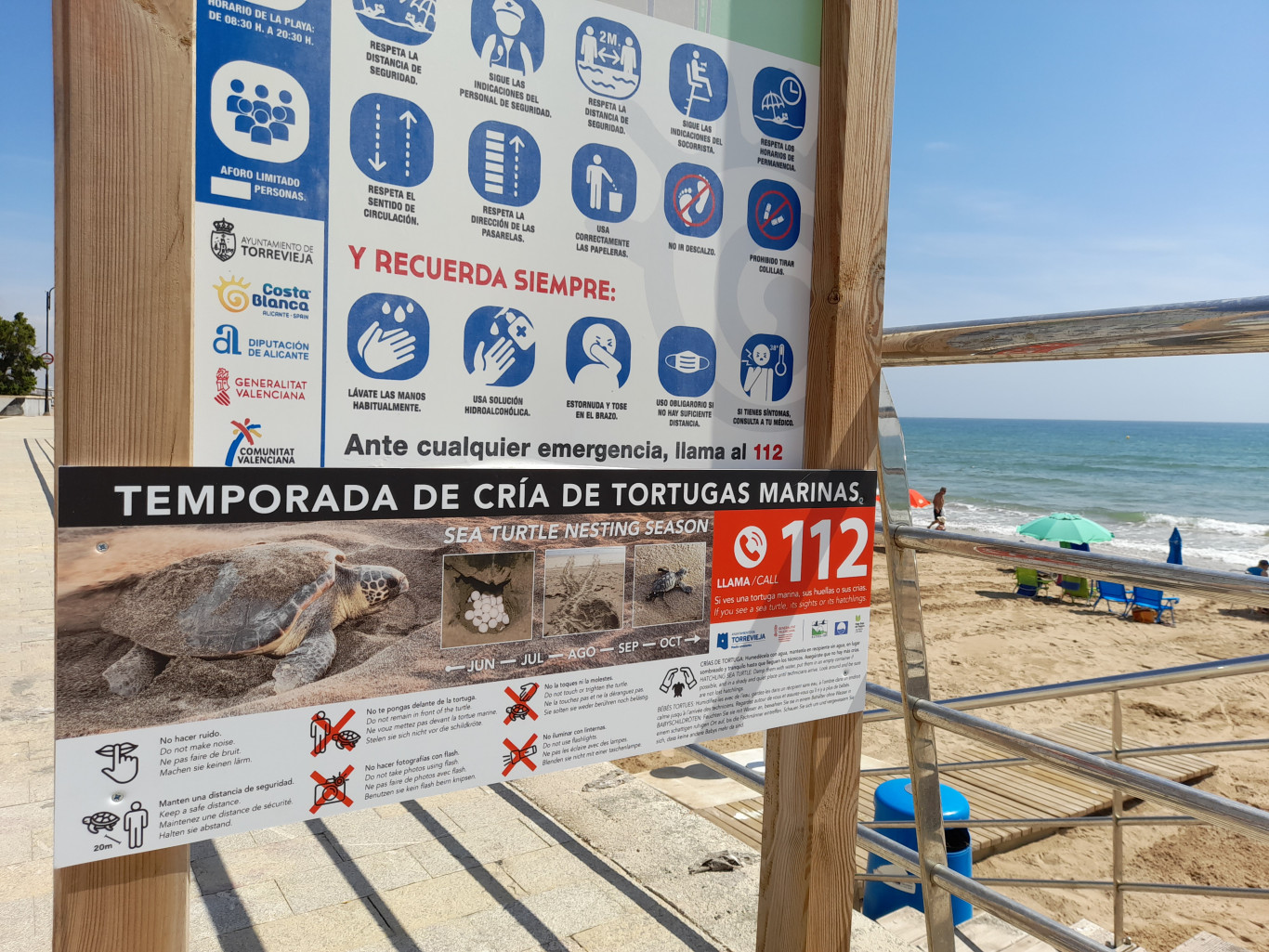The City Council begins the annual campaign to report on possible nesting of sea turtles on the beaches

As of this month of June, the peak period begins in which loggerhead turtles can eventually go out to the beaches at night to spawn. This period concludes throughout the month of October, where occasionally you could find baby turtles from possible nests that had not been located during the previous months.
The Torrevieja City Council has been carrying out specific information campaigns every year for all users of the beaches (citizens in general, walkers, beach bars), for services such as beach cleaning that operate at night, and for Local Police and Civil Guard All this with the intention that, given the possibility of observing a turtle laying eggs on the beach, or its trace left in the sand when it returns to the sea, it is known to act correctly so that everything goes well.
Antonio Vidal, councilor for the Environment and Beaches, has indicated that this year, in addition, they will be installed in the main accesses to the beaches, some posters alluding to the general protocol to follow, which begins by calling 112, and in the that includes a series of recommendations to avoid disturbing the animal while it spawns or tries to do so, being essential not to approach, not make noise or dazzle the animal and avoid photographing it with a flash.
By calling 112, a team of professionals is set up to attend the event, and in which the Ministry of the Environment, the University of Valencia and the Oceanogràfic of Valencia participate, as well as the Torrevieja City Council in its territorial area. Quick action is essential for the location of the nests and the protection of the eggs, in highly touristy beaches that the next day will be full of users. It also allows the collection of an important series of biological data on sea turtles (such as their genetic characterization or their tagging with satellite emitters) that ultimately contribute to a better understanding of the process of recolonization and consolidation of new breeding beaches that is taking place during in recent years on the shores of the Spanish Mediterranean, which will imply better management of the entire process.
Everyone's involvement and knowing how to act correctly can help consolidate Spanish beaches as a nesting and breeding area for sea turtles.